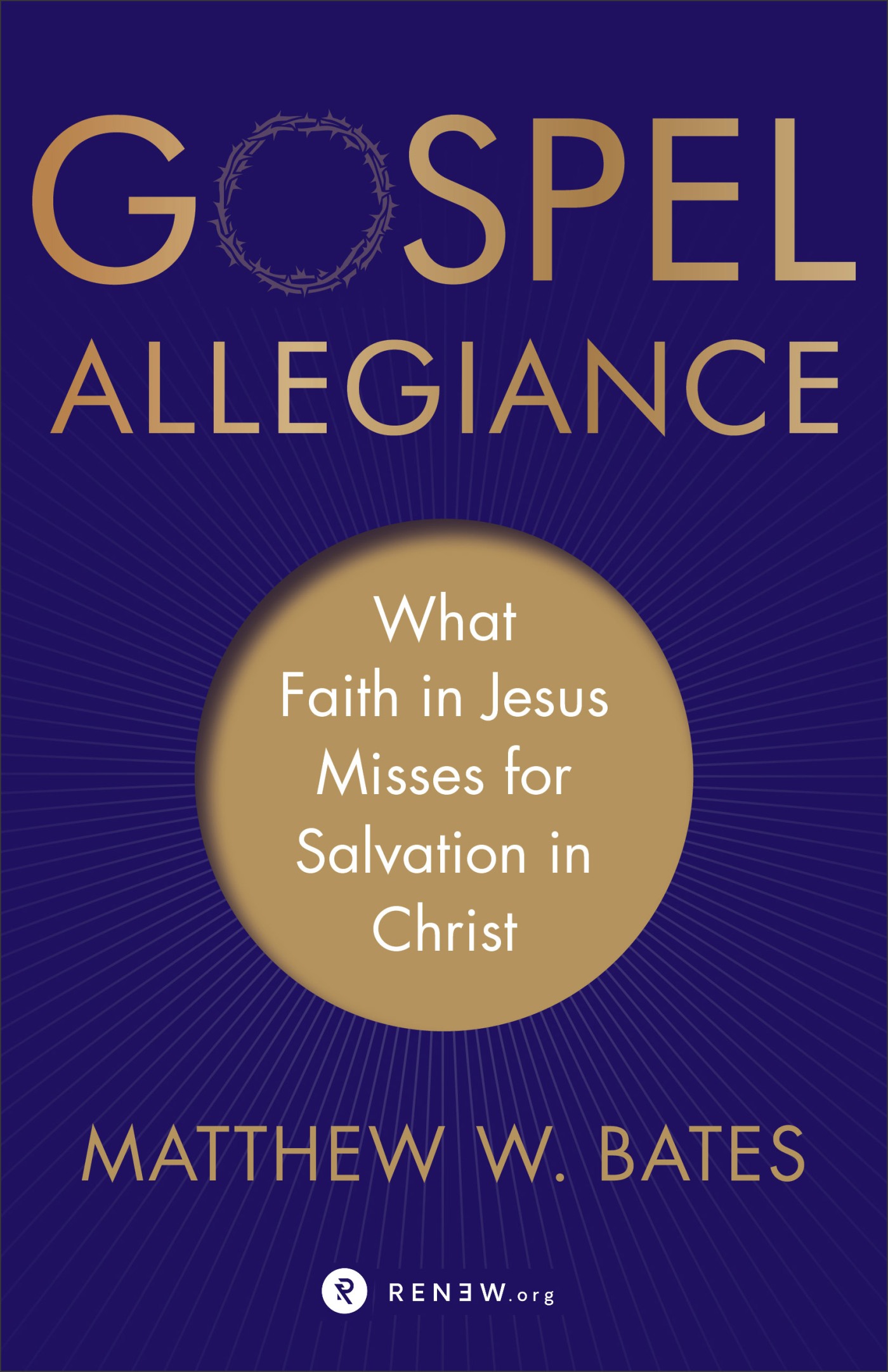In Matthew Bates’ newest release Gospel Allegiance (here I will be dealing with the introduction and opening chapter), the reader is immediately alerted to a problem: by and large Christians are missing the mark as to what the gospel actually is. For Bates the solution is found in the Bible and a recovery of what it has to say about salvation.
When it comes to grace, faith, and salvation, we all bring our personal baggage and preconceived notions to these highly-biblical concepts. Bates makes the simple claim that what we mean by these words (in the English language) may not be at all what the NT authors had in mind.
Though much ink has been spilt and many sermons dedicated to describing the gospel, Bates insists that “we need better language and a new model to more accurately convey what Scripture teaches about salvation” (Introduction).
The author writes, “Today the church must contend with false gospels announcing that God wants to make us rich, or physically healthy, or psychologically balanced, or well connected, or militarily powerful, or tolerant of others.”
Though some of his conclusions prove to be somewhat provocative (some would accuse him of tampering with something that should be left alone), his tone is warm as he does not seem to have written a provocative book for the sake of writing a provocative book. Though this does not make one’s argument foolproof, his concern for the church and her well being is noteworthy and admirable. It is also refreshing to read a scholar who does not seem to talk down to you but exhibits genuine humility.
The heart of the matter is the language Bates uses: “saved by allegiance alone” rather than what many are accustomed to: saved by faith alone.” As Bates points out, the Greek word pistis can mean ‘faith’ or ‘faithfulness’ (or allegiance), though English translations prefer to translate ‘faith.’ Bates has noted so far that though he does not think every use of pistis should be translated as ‘faithfulness,’ there are some passages where ‘faithfulness’ makes sense. I will deal with this more in the reviews to come.
Rather than taking the easy way out, Bates is calling the church to dig deeper, to attempt to uncover what we many times mute or obscure in our presentation of God’s gospel. Misunderstanding the gospel just might mean misunderstanding the heart of God and the very nature of God, and that is why this book comes recommended by me.
“While we may agree that the Bible’s vision of salvation manifests a beautiful simplicity, it is not simplistic.”
In ch. 1, it is pointed out how some dogmatically insist that the gospel is not about dogma but rather about social action; that is, the gospel is about good deeds rather than the right words. Sometimes St. Francis of Assissi is appealed to, allegedly saying that we ought to ‘preach the gospel at all times; when necessary, use words.’
Bates notes that we appeal to this many times out of convenience; sharing the gospel is quite uncomfortable, proving to at times be highly inconvenient. Yet the notion that we “spread” the gospel without words is in serious contradiction with Scripture. While “Our good deeds can amplify the gospel message,…the message itself must first be verbally proclaimed by someone in order for our actions to reinforce it.” (Bates next adds that there is no evidence that St. Francis ever said such a thing.)
The gospel is not about our action in the world but about Christ’s action towards us. Thus the author points out the flaw in reducing the gospel to being about “vague Christian activities.”
Equally troubling and erroneous to Bates is the Roman’s Road approach, as well as the popular notion that justification by faith is the heart of the gospel. The author finds that a Roman’s Road approach (which seems to focus on just a few verses in Romans) misses the point of the gospel while also promoting cheap grace (a “just do this and you’re good to go!” culture within our churches).
I appreciate that Bates seems to be avoiding both quick fixes (something quite popular in a Western context) as well as oversimplifications. His desire is to let the text say what the text has to say.
In ch. 1, the author shares his heart and reason for the book: “Nothing is more vital than the pure gospel. The church must safeguard, display, and invite others to experience this treasure.”
While many will accuse him of tampering with the very foundation of the gospel, I see what Bates is doing and I get it. Though I am still reading through (stay tuned for Part II), I have not detected anything even remotely close to “heresy” but am enjoying the read.
*Page numbers were not provided in the quotations above since I received an advance copy.


September 18, 2019 at 10:26 am
Glad you’re reading and reviewing this book, Paul! It’s an important one.
LikeLiked by 1 person
September 18, 2019 at 2:26 pm
Hey Alex! Have you read it? Or Bates’ previous book?
LikeLike
September 18, 2019 at 2:59 pm
I read his previous book. Just realized he wrote a new one.
LikeLiked by 1 person
September 18, 2019 at 10:08 pm
I have yet to read his previous book, but this (new) one seems to be a more accessible version of ‘Salvation by Allegiance Alone.’
LikeLike